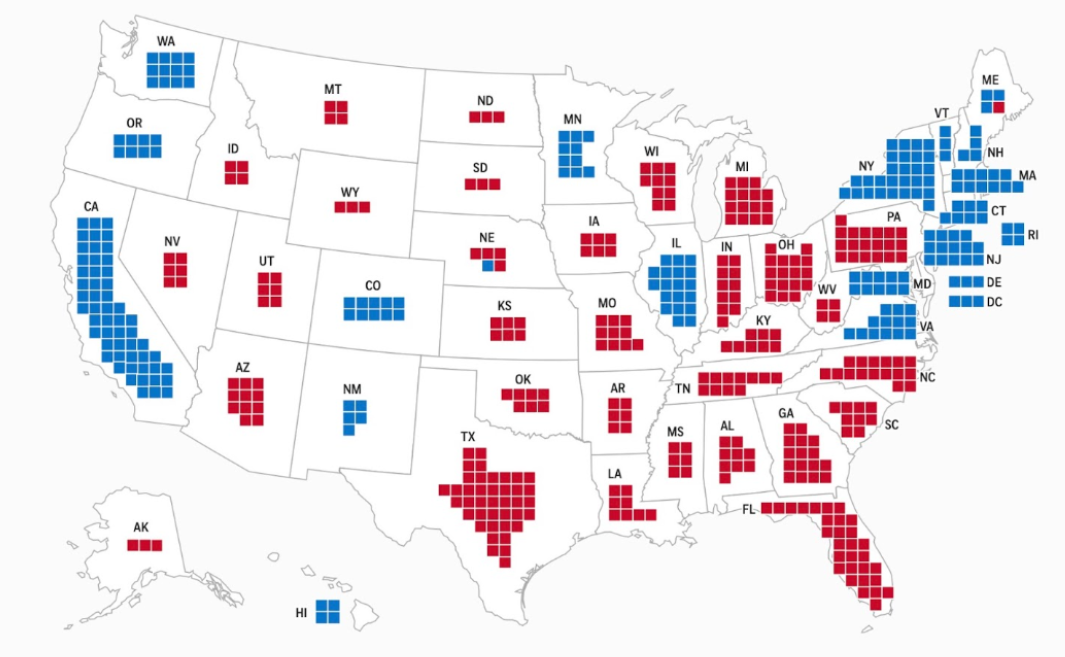In November of 2024, Americans nationwide will file to voting booths to cast their votes for the 47th President of the United States! This election will be the first to have its electoral vote distribution determined by the 2020 census. That means some states now have more or fewer electoral votes. For a candidate to win, they must secure 270 out of the 538 electoral votes.
So far, the only two confirmed Democratic candidates are current President Joseph Biden and Marianne Williamson. Currently, President Biden has much more support than Marianne Williamson. Furthermore, Robert F. Kennedy Jr. was also running for the Democratic nomination, but he announced recently that he would run as an independent instead. Meanwhile, in the Republican party, there are many more candidates. The top five candidates in the opinion polls are former President Donald Trump, Florida Governor Ron DeSantis, Vivek Ramaswamy, former Ambassador Nikki Haley, and former Vice President Mike Pence. You can view all the candidates and their opinion polls at Project 538 Polls.
One of the biggest questions asked about this election so far is whether or not former President Trump can run if he’s convicted of the crimes he’s been indicted of. However, it’s quite difficult to determine, as it is up to interpretation of the Constitution. To start, Article II Section I (which specifies the requirements for a president) doesn’t specify any limitations based on criminal record. However, Section III of the 14th Amendment disqualifies anyone who has engaged in an “insurrection or rebellion” against the Constitution from holding office. However, Congress would need to manually take action to disqualify him from the election, which there is little chance of due to the division in the legislature.








